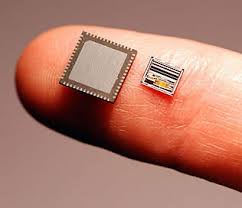Reproduction of MOSFET nano-tube transistors based on nano-microelectronics (Ph.D.)
Researcher and author: Engineer Afshin Rashid
Note: In the electronic sciences, the manufacture and replication of Mosfet nano-transistors has been the basis for the creation of electronic nano-chips for computing devices.
The use of MOSFET nano-transistors was due to the growth in chip size shrinkage, which has now reached about 2.5 microns, but due to the emergence of quantum effects, limitations have been made in reducing their size further. Nano-electronics are developing new ways of making transistors on a small scale, then several tens of nanometers in size, from a science called nanotechnology. Unlike today's MOSFETs, which operate on the basis of a mass movement of electrons in matter, new devices follow nanoscale quantum mechanics phenomena in which the discrete nature of the electron can no longer be ignored.
We divide these devices into three parts:
Carbon nanotube transistors
1) Single electron devices
Molecular electronic devices
The use of nanowires as a metal-oxide-channel transistor effect transistor (MOSFET) semiconductor can enable a structure around a gate to perform excellent electrostatic gate control on the channel to reduce short channel effects. It is based on the structure of nanocircuits and the basis for making electronic nanoparticles for computing devices.
Effective integration of nanowires into modern metal oxide-supplementary semiconductor (CMOS) technology has also been used, in particular in MOSFET devices, and non-volatile memory applications. By extending the MOSFET nanowire structure to a nanocircuit architecture, various new semiconductor materials can be explored. Nanowire MOSFETs from the MOSFET (MOSFET nano-transistor) semiconductor have been proven to be a powerful and useful substrate for studying the physical and electrical properties of new materials. Constraints such as heat dissipation, leakage current, and channel length modulation have become a major concern that will inevitably lead to a slowdown of the CMOS scale when approaching the atomic dimension. Therefore, there is an urgent need to develop new semiconductor technology to solve issues such as cost, speed, density, reliability and energy loss. Many efforts have been made
Conclusions on the replication of MOSFET nanotube transistors
Nano Transistor Scaling Effect Metal Oxide Metal Field Effect Transistor (MOSFET) With the advent of new nanoelectronic technologies to extend the metal-oxide complementary semiconductor (CMOS) semiconductor technology continues to grow ever smaller.





